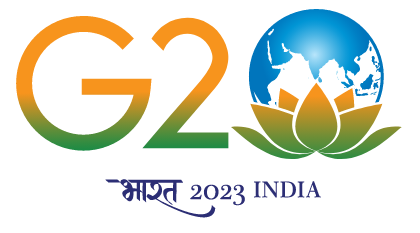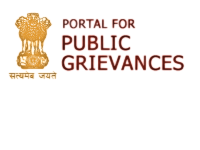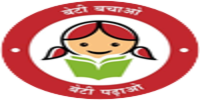Background
Pradhan Mantri Kaushal Vikas Yojana (PMKVY) was launched in 2015 to encourage and promote skill development inthe country by providing free short duration skill training and incentivizing this by providing monetary rewards to youth for skill certification. The overall idea is to boost both industry and employability of youths. During its pilot phase in 2015-16, 19.85 lakh candidates were trained.
After the successful implementation of pilot PMKVY (2015-16), PMKVY 2016-20 was launched by scaling up both in terms of Sector and Geography and by greater alignment with other missions of Government of India like Make in India, Digital India, Swachh Bharat, etc. The Scheme is aligned to Common Cost Norms and has a total budgetary outlay of Rs 12000 Crores.
Objectives of PMKVY 2016-20
- Enable and mobilize a large number ofyouths to take up industry designed quality skill training, become employable and earn their livelihood.
- Increase productivity of the existing workforce,and align skill training with the actual needs of the country.
- Encourage standardisation of the Certification process and put in place the foundation for creating a registry of skills.
- Benefit 10 million youth over the period of four years (2016- 2020).
Key Components of the Scheme
- Short Term Training (STT) - The Short-Term Training imparted at PMKVY Training Centres (TCs) is aimed towards the candidates who are either school/college dropouts or unemployed. Duration of the training varies according tothe job role, however, majority of courses range between 200-600 hrs (2 ÔÇô 6 months). The Training is provided according to the National Skills Qualification Framework (NSQF) with Soft Skills, Entrepreneurship, Financial and Digital Literacy curriculum, a part of the curriculum. Upon successful completion of their assessment and certification, candidates are provided placement assistance by Training Partners (TPs).
- Recognition of Prior Learning (RPL) - Individuals with prior learning experience or skills are assessed and certified under the Recognition of Prior Learning (RPL) component of the Scheme. RPL aims to align the competencies of the unregulated workforce of the country to the NSQF. The duration of the training/orientation ranges between 12-80 hrs.
- Special Projects - Special Projects component of PMKVY envisages to encourage trainings in special areas and premises of Government bodies, corporates / industry bodies and trainings in special job roles not defined under the available Qualification Packs (QPs)/National Occupational Standards (NOSs).These are the projects which mayrequire some deviation from the terms and conditions of Short-Term Training under PMKVY.
The scheme is being implemented through two components:
- Centrally Sponsored Centrally Managed (CSCM): This component is implemented by National Skill Development Corporation. 75% of the PMKVY 2016-20 funds and corresponding physical targets have been allocated under CSCM.
- Centrally Sponsored State Managed (CSSM): This component is implemented by State Governments through State Skill Development Missions (SSDMs). 25% of the PMKVY 2016-20 funds and corresponding physical targets have been allocated under CSSM.
For more details kindly refer to http://pmkvyofficial.org/.
Guidelines & Manuals
| Serial No. | Title | Download/Link |
|---|---|---|
| 1 | Circular for States/UTs under State Engagement Component of PMKVY (2016-20) | |
| 2 | Operations Manual for PMKVY (2016-20) - Centrally Sponsored State Managed Component | |
| 3 | Guidelines for State Engagement under PMKVY (2016-2020) | |
| 4 | PMKVY Guidelines (2016-2020) | |
| 5 | Guidelines for Accreditation, Affiliation & Continuous Monitoring of Training Centres for the Skills Ecosystem | |
| 6 | PMKVY Branding and Communication Guidelines | |
| 7 | Corrigendum: Guidelines for State Engagement under PMKVY 2.0 (2016-20) | |
| 8 | Ministry's order on Service Level Agreement (SLA)/Memorandum of Understanding (MoU) w.r.t PMKVY (2016-20) | |
| 9 | Corrigendum: Operation Manual for State Engagement Component of PMKVY (2016-20) | |
| 10 | Service Level Agreement/Memorandum of Understanding (MoU) | |
| 11 | SOP - Assessment and Certification | |
| 12 | Circular for States/UTs under State Engagement Component of PMKVY (2016-20) | |
| 13 | Corrigendum: Increasing the capping of targets under CAT-4 from 20% to 40% for PMKVY ÔÇô Centrally Sponsored State Managed Component | |
| 14 | OM regarding mandatory compliance of AEBAS under CSSM component of PMKVY and Standard Operating Procedure | |
| 15 | Enable and strengthen skill development activities under PMKVY ÔÇô CSSM component in aspirational districts | |
| 16 | Utilisation of funds released for implementation of PMKVY 2016-20 | |
| 17 | Clarification regarding Direct Benefit Transfer under CSSM component of PMKVY 2016-20 | |
| 18 | Standard Operating Procedure (SOP) for Short Term Training by Academic and Industry Institutions under Pradhan Mantri Kaushal Vikas Yojana (PMKVY) 2016-2020 (Pilot Phase) | |
| 19 | Guidelines for State Skill Development Mission/ State Govt. to function as Inspection Agency on SMART for Centre Accreditation and Affiliation | |
| 20 | Skill Saathi Counselling Scheme Guidelines 2018-19 | |
| 21 | Amendments/ Revision in Guidelines for State Engagement under PMKVY (2016-20) (CSSM-PMKVY) | |
| 22 | Amendments/ Revision in the Operation Manual of PMKVY (2016-20) (CSSM-PMKVY) | |
| 23 | Roll out of CSSM-PMKVY (2016-20) on PFMS | |
| 24 | Utilisation of Funds by SSDMS of States/ UTs under the CSSM component of PMKVY 2016-20 | |
| 25 | In-principle approval for extension of provision of Boarding & Lodging, and Transportation cost for 50% of the enrolled candidates to all the North-East States, all PMKKs, Jammu & Kashmir (except 4 districts), Himachal Pradesh and Uttarakhand under PMKVY 2016-20 (both the CSCM and CSSM component) till 31st March, 2020 | |
| 26 | Rationalisation of Financial Target and Corresponding Physical Target in-princpally approved for States/UTs | |
| 27 | Linking of CSSM component of PMKVY 2016-20 with AEBAS attendance | |
| 28 | Requests from States for clarification on Cost Break-up under CSSM component of PMKVY 2016-20 | |
| 29 | BAS (Biometric Attendance Services) under CSSM component of PMKVY (2016-20) to be payable | |
| 30 | Special Projects under CSSM component of PMKVY 2016-20 | |
| 31 | In-principle approval of applicability of Common Norms for Skill Development Schemes Third Amendment, 2019 ÔÇô revision in base cost in PMKVY 2016-2020 | |
| 32 | Rationalisation of financial targets approved in-principle for States/ UTs, 3% fund under ÔÇÿAwareness and Mobilization CostÔÇÖ under CSSM component of PMKVY 2016-20 and opening up of the PMKVY 2016-20 scheme (only Cat-2 of CSSM component) for more relevant NSQF aligned non SSC courses | |
| 33 | Handbooks and Induction Kits under CSSM component of PMKVY 2016-20 | |
| 34 | Revised action plan for FY 2019-20 under the CSSM component of PMKVY 2016-20 | |
| 35 | In-principle approval on the list of 384 job roles under CSSM component of PMKVY 2016-20 | |
| 36 | In-principle approval of last date of enrollment of candidates under PMKVY 2016-20 | |
| 37 | On-line request for suggestions for minimizing the Regulatory Compliances | |
| 38 | Pending assessments under Central Component of PMKVY 2.0 | |
| 39 | Financial closure of Pradhan Mantri Kaushal Vikas Yojana (PMKVY 2.0) (2016-20)- Submission of pending committed liability alongwith Utilisation Certificates (UCs) for the release of funds under PMKVY 2.0 |
Sanction Order Under State - Engagement Component of PMKVY (2016-20)
| Serial No. | Title | Download/Link |
|---|---|---|
| 1 | Andaman and Nicobar Islands | |
| 2 | Andhra Pradesh | |
| 3 | Arunachal Pradesh | |
| 4 | Assam | |
| 5 | Bihar | |
| 6 | Chandigarh | |
| 7 | Chhattisgarh | |
| 8 | Dadra and Nagar Haveli | |
| 9 | Daman and Diu | |
| 10 | Delhi | |
| 11 | Goa | |
| 12 | Gujarat | |
| 13 | Haryana | |
| 14 | Himachal Pradesh | |
| 15 | Jammu & Kashmir | |
| 16 | Jharkhand | |
| 17 | Karnataka | |
| 18 | Kerala | |
| 19 | Lakshadweep | |
| 20 | Madhya Pradesh | |
| 21 | Maharashtra | |
| 22 | Manipur | |
| 23 | Meghalaya | |
| 24 | Mizoram | |
| 25 | Nagaland | |
| 26 | Odisha | |
| 27 | Puducherry | |
| 28 | Punjab | |
| 29 | Rajasthan | |
| 30 | Sikkim | |
| 31 | Tamil Nadu | |
| 32 | Telangana | |
| 33 | Tripura | |
| 34 | Uttarakhand | |
| 35 | Uttar Pradesh | |
| 36 | West Bengal |















